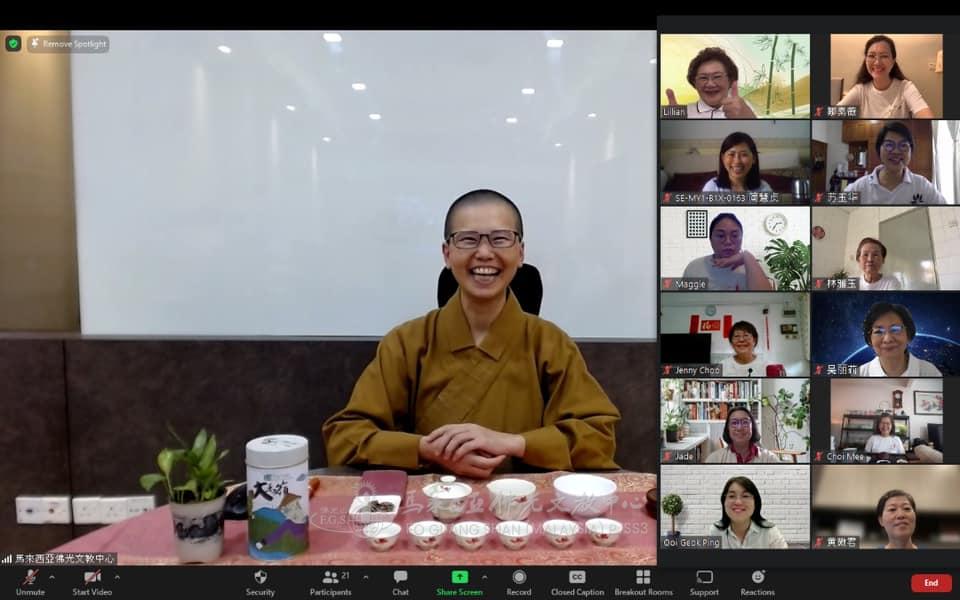Meditation with 🍵 tea
Yesterday afternoon we gathered online for our Meditation with Tea, organized by Dharmapala – Spritual & Cultivation sub-group. In total there were 23 participants who attended the session.
It was guided by FGS SS3 PJ Centre’s meditation guidance monastic, Venerable Miao Dao.
Venerable Miao Dao started off the session, with a brief run-down of the items required for this tea meditation session such as tea vessel, tea cups, tea leaves, and hot water flask.
Also requested was to have some sour plums or raisins for this session, which plays a part in the tea meditation.
Venerable reiterated that this is a Tea Meditation session and is not about Tea Art.
Therefore, we do not need to be too particular about having a full tea set with all the accessories or specific type of tea cups. As in meditation, there are many forms of meditation which include sitting, walking, standing so even drinking tea can be a form of meditation.
Venerable then guided us step-by-step of relaxing every part of our body from head to toe, and then into the counting of our breath technique.
The class then sat in meditation for about 5 minutes, quietly counting our own breathing.
After which, we were again guided on how to “wake up” from meditation with the warming- up movements on parts of our body.
We then moved on to the next process of meditation – with Tea.
Venerable explained the process from putting the tea leaves into the tea vessel, pouring hot water into it, pouring the simmered tea into tea cups and drinking it.
Each of the step is a meditation process in itself, as we are to observe the appearance and sound of the tea leaves, when in dry form and after hot water is poured over it.
Feel the warmth of the tea cup in our hand, smell the aroma of the tea and the taste of the tea in our mouth. Through these processes aside from using our eyes, ears, nose and mouth…we should also contemplate on the origins of the tea leaves which will help us to raise up our grateful/compassionate heart.
Then we were to put either the sour plum or raisin into our mouth and to savour the texture and taste from not chewing on it till the time we chew on it. Just as in the process of brewing tea, we should learn to contemplate the different stages.
Venerable further explained that through these processes we learn to focus, be more observant, and appreciate everything we have and do in our daily life. Using this practice or mind set, it will definitely help us as BLIA members in carrying out our tasks/duties.
Everyone enjoyed the session and we ended with a sharing of personal feedback/experience from each participant around the table whilst learning the process of tea meditation.


